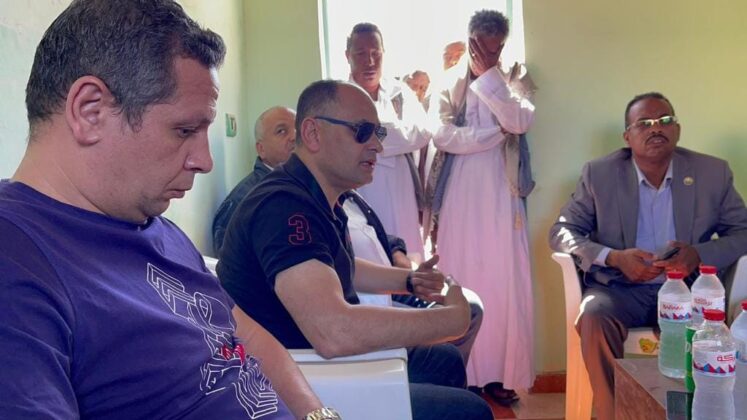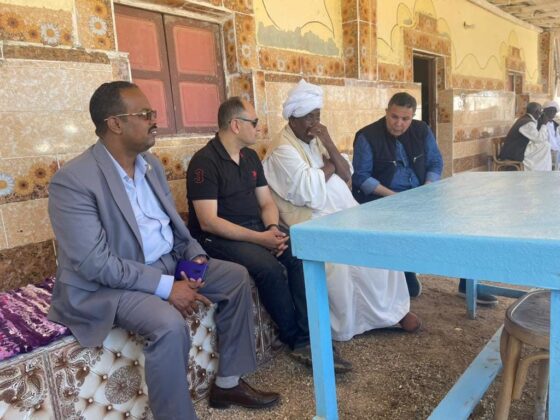
Egypt: Under the directiveness and supervision of Minister of Environment Yasmin Fouad, the head of the Environmental Affairs Agency, Ali Abu Sunnah, continued to carry out field visits to inspect the environmental conditions of nature reserves and to support the investment in them.
While carrying out the field visits and implementing the instructions of the Minister of Environment, he recently visited Jabal Alba Reserve. On his part, he stated that “Preparing a comprehensive plan of reserves that includes the optimal economic exploitation of each reserve and its future sustainable development opportunities.”
Meanwhile, he further added in his remarks that Locals in reserves are an essential part of the development plan that will include nature reserves. In addition, the visits were conducted under the guidance of Yasmin Fouad, the Minister of Environment, to support environmental investment in nature reserves.
Furthermore, Ali Abu Sunna, the Executive Chairman of the Environment Affairs Agency, paid an inspection visit to Jabal Alba Reserve to discuss its environmental conditions and prepare for its development work in the presence of Mr Ali Nour, the deputy of the Parliament from Halayeb and Shalatin region.
Several other top officials were present, including Mohammed Salem, the advisor of the nature reserve sector, Tamer Kamal, the director of the Red Sea Reserves, and dean Tamer Abu Al-Ainin, the advisor of the Ministry of Environment and the representative of the local community in the reserve.
Moreover, the Executive Chairman of the Environmental Affairs Agency, Sunnah, stressed the support of the political leadership of environmental work, especially development work in Egypt’s natural reserves to protect natural resources and biodiversity.
He also pointed out the supporting investment with the participation of the local community as one of the key pillars of all development work, pointing to the assignment of reserve managers to prepare a comprehensive plan that includes economic optimal exploitation of all Protected and its opportunities for future sustainable development.
“The Executive President also met with the reserve staff from the sons of Halayeb and Shalatin, and discussed ideas for developing and supporting the reserves in the coming period with all the required human and financial resources, and promised to improve the efficiency of the reserve headquarters and provide all the required facilities of monitoring devices and equipment for the reserve,” said reports.
The reports also confirmed that Ali Abu Sunnah also met with the heads and sheikhs of the tribes in the Halayeb and Shalatin region, where they thanked him for his visit to the region and the support given by the Minister of Environment to protect Jabal Alba, which is rich with many natural resources.
It is noteworthy that Mount Elba Reserve is located in the southeastern corner of Egypt, covers an area of 35600 square kilometres, and rains fall on the reserve at a higher rate than others, as the reserve has many valleys with forests of acacia trees, and there is a tree called “dragon tree” or “ombit” that only grows in Egypt At the peaks of Mount Alba.
In the end, the reserve also has many rare animal species, such as the Egyptian deer, the Nubian mule, and the Arwian ram, and in total, 23 species of mammals were recorded in the reserve.
The reptile species also multiply in reserve, including the “can perch”, which is a species native to the area, meaning that its only place in the world is Mount Can.
The reports concluded that the Sanctuary includes a wonderful variety of birds, and along with the natural richness of the reserve, there is also a unique human richness.



